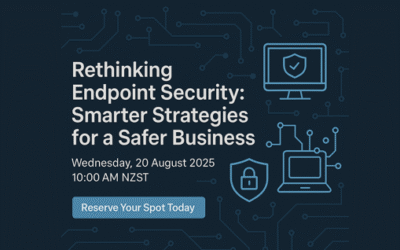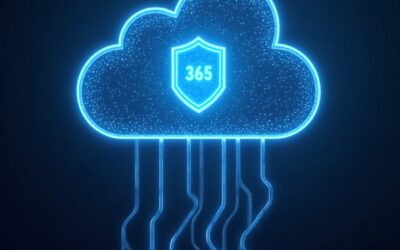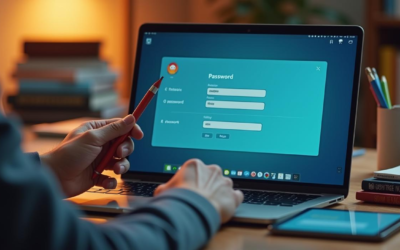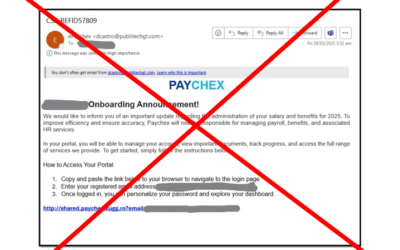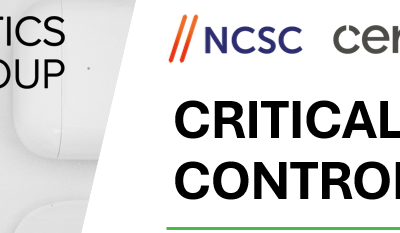Data Leak Protection (DLP)
is the name of several policies in Office 365, setting up what data can, and can’t be, shared and with whom.
Imagine being able to automatically identify private information like passport numbers, Health IDs or bank account details and make sure that those are only being shared with people that are authorised to see them.
The good news is that you can do this with 365, provided you turn on the policies and set them up correctly, and monitor when data is shared.
Under the NZ Privacy Act, we’re all expected to take care of personal data entrusted to us and to make sure it’s only used for the purpose for which is being obtained.
With Office 365, there’s no excuse for that to be breached provided that we understand what data should be kept, what might be kept incorrectly, and how its being shared. With this we can set up rules to monitor your Office 365 system and report on how records are shared.
We include a basic set up of DLP in our KARE for Security S2 plan to get you started.

Webinar Replay: Rethinking Endpoint Security: Smarter Strategies for a Safer Business
Cyber-protection keeps getting more complex, more restrictive and more expensive. This month we are talking with expert Thomas Shobbrook. He updates us on the latest security trends and help us understand how well protected your device is out-of-the-box. We ask...
Webinar Replay – Securing the Mobile Frontier: Cybersecurity Essentials for Phones and Tablets for Modern Businesses
As mobile devices become the backbone of modern business operations, they also present a growing target for cyber threats. Apple or Android - they're both important. Every time you use these to access your Teams, Email or anything else, you are relying on them to be...
Device Code Phishing: A Dangerous New Scam You Need to Know About
Device code phishing is a sneaky new way hackers are stealing people's online accounts. In device code phishing, threat actors exploit the device code authentication flow to capture authentication tokens, which they then use to access target accounts, and further gain...
June 2025 Report: Cyber is now the THIRD largest economy in the world
As we approach the midpoint of 2025, New Zealand’s cyber security landscape continues to evolve rapidly. With digital transformation accelerating across sectors, the country faces a growing array of cyber threats—ranging from financially motivated scams to...
Webinar Replay -Enhancing Your Security Posture with Microsoft Secure Score
This webinar replay covers the essentials of Microsoft Secure Score. Secure Score is a powerful tool designed to help businesses assess and improve their security across Microsoft 365 workloads. We will explore what Microsoft Secure Score is, why it is crucial for...
Webinar Replay – 5 mistakes people often make with passwords and how to overcome them
Passwords are the first line of defence against cyber threats. However, many people still make common mistakes that leave their accounts vulnerable. Watch this video for a 30-minute webinar where we will discuss the most frequent password pitfalls and how to avoid...
Who’s been paying attention?
We’re really proud of our clients! Last week, these little pieces of ill-intentioned mischief popped up for a couple of the businesses we look after.They were smart enough to evade anti-spam software but not the cyber-training. Although the emails look legitimate,...
Don’t let these common security gaps take your business down.
We’re only a few months into 2025, and already we’ve seen businesses hit hard by cyberattacks they could have prevented. Every time we conduct IT security checkups, we find the same critical vulnerabilities—gaps that could lead to serious downtime, data loss, or...
NCSC warns law firms
It’s not surprising that legal practices are targeted by cyber-criminals.By their very nature, they hold considerable amounts of private “PII” data (personally identifiable information). On top of that, law firms are typically busy, pressured environments where it is...
Webinar Replay – What are the NZ Government recommendations for SME Business cyber-security?
What are the NZ Government recommendations for SME Business cyber-security? How does your business match up?CertNZ has been rolled into the new National Cyber Security Centre. They've released the 10 Critical Controls and a Cyber-Security Framework? What do they mean...

